Upsert Multiple Records activity
An activity that creates or changes one or more records, if they exist, in an AgilePoint NX entity. AgilePoint NX recommends to use Upsert Multiple Records as an alternative to Create Record so you do not create duplicate records.

Configure the Upsert Multiple Records activity
To configure the Upsert Multiple Records activity, do the procedure in this topic.
Prerequisites
- AgilePoint NX OnDemand (public cloud), or AgilePoint NX PrivateCloud or AgilePoint NX OnPremises v7.0 Software Update 2 or higher.
Good to Know
- To send an email notification, click
Advanced
 >
Email Notifications
>
Email Notifications  .
. For more information, refer to Email Notifications screen (Process Activities).
- In most text fields, you can use process data variables as an alternative to literal data values.
- This section shows the configuration settings on the configuration screens for this activity. Other configuration settings apply to system activities. For more information, refer to:
- You can configure whether this activity waits for other activities before it runs.
For more information, refer to How Do I Configure an Activity to Wait for Other Incoming Activities?
How to Start
- Open Process Builder.
For information about how to open this screen, refer to Process Builder.
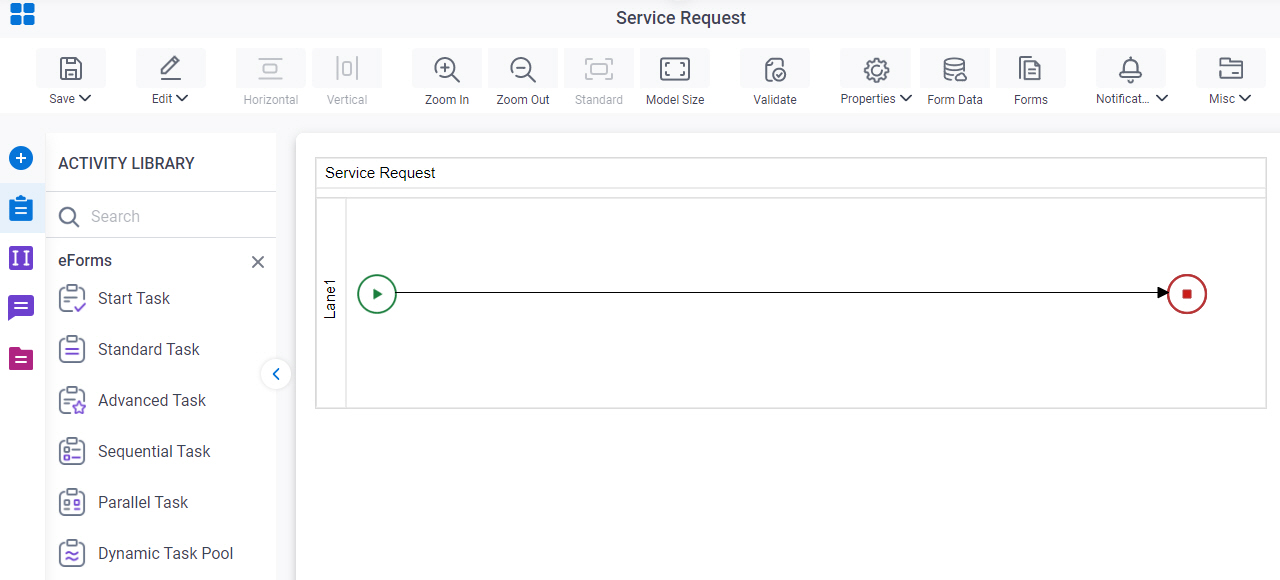
- In Process Builder, in the Activity Library,
open the Data Entities tab.
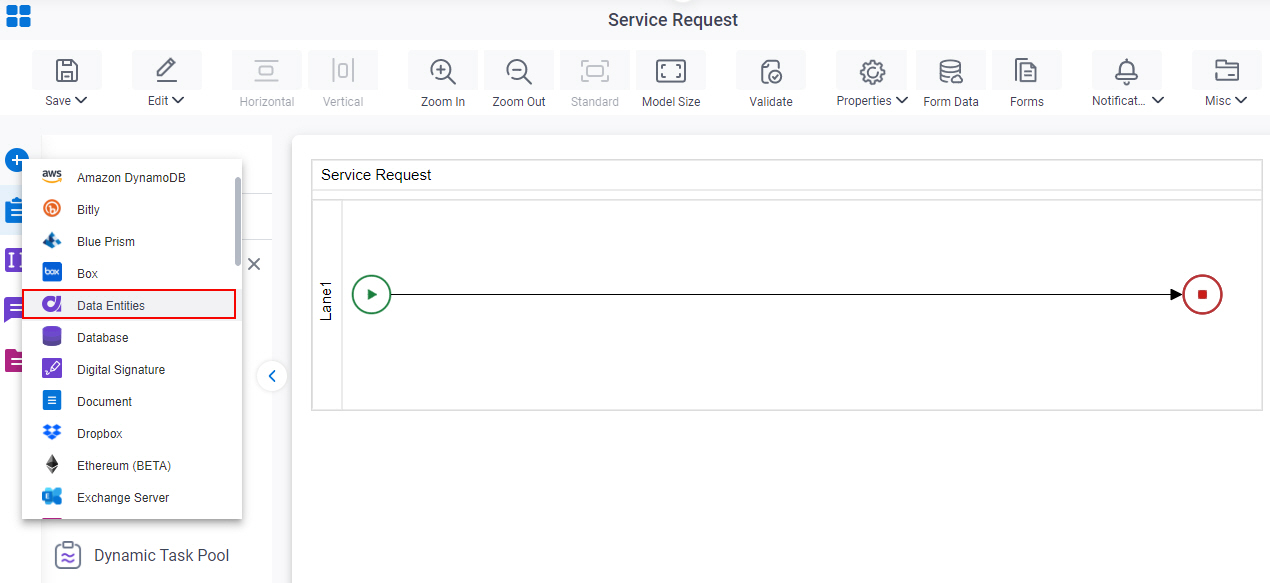
- On the Data Entities
tab,
drag the Upsert Multiple Records
activity onto your process.
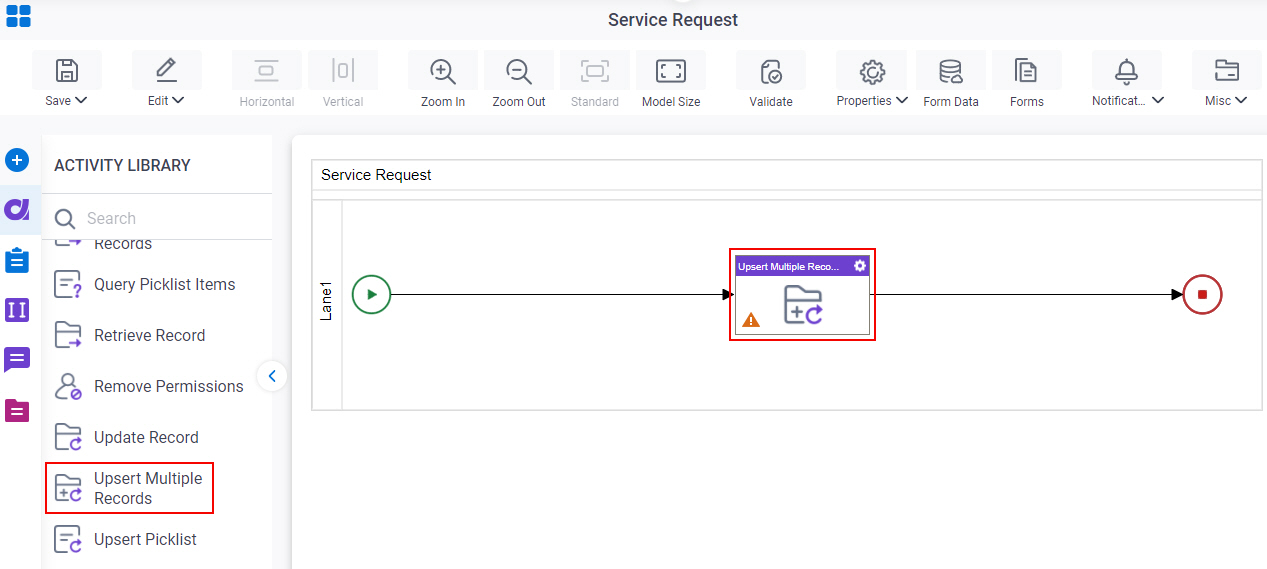
General Configuration
Specifies the basic settings for the Upsert Multiple Records activity.
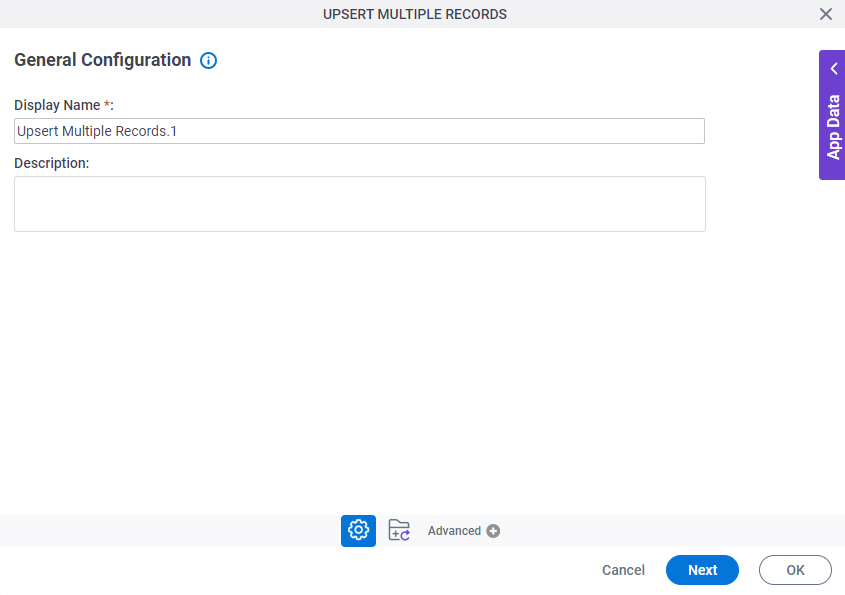
Good to Know
- Documentation for this screen is provided for completeness. The fields are mostly self-explanatory.
Fields
| Field Name | Definition |
|---|---|
|
Display Name |
|
|
Description |
|
Upsert Multiple Records Configuration
Specifies the information to create or change one or more records, if it exists, in AgilePoint NX.
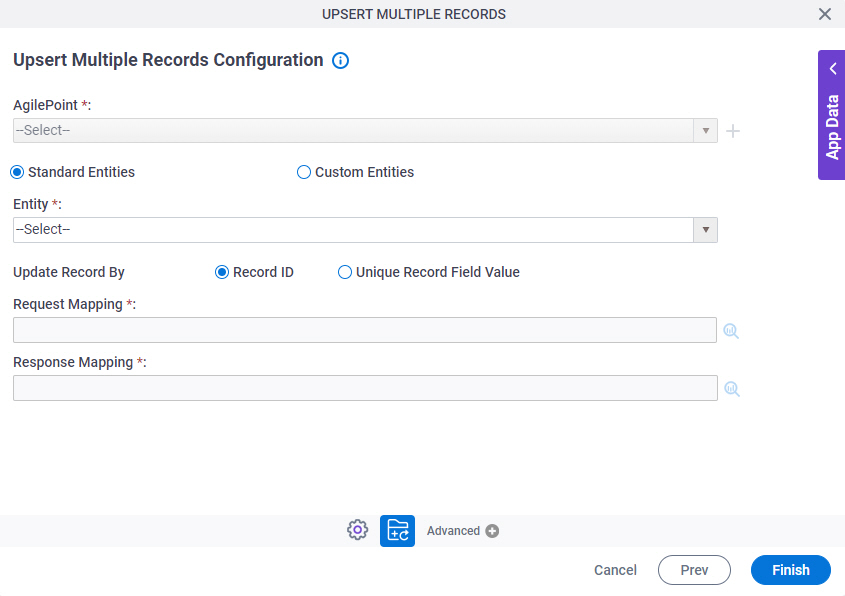
Fields
| Field Name | Definition |
|---|---|
|
Standard Entities / Custom Entities |
|
|
Entity |
|
|
Update Record By |
|
Request Mapping |
|
|
Response Mapping |
|



